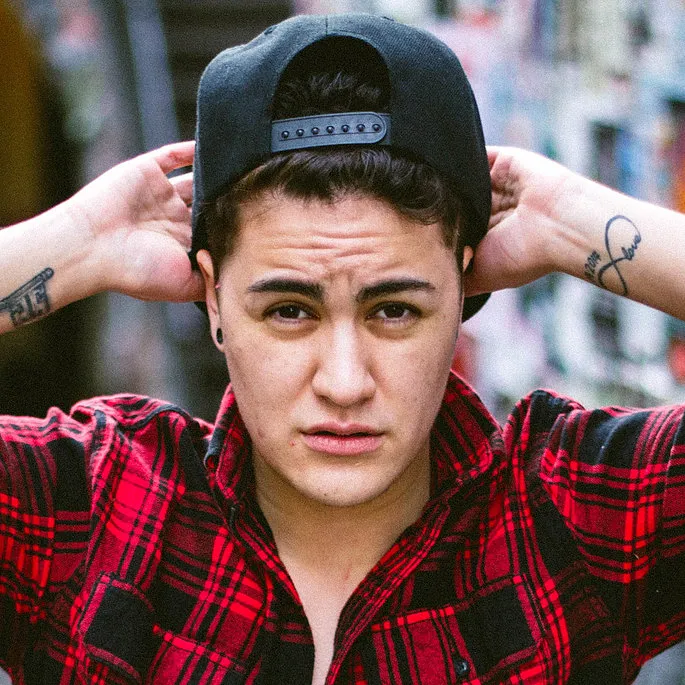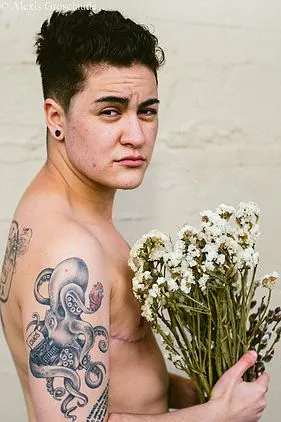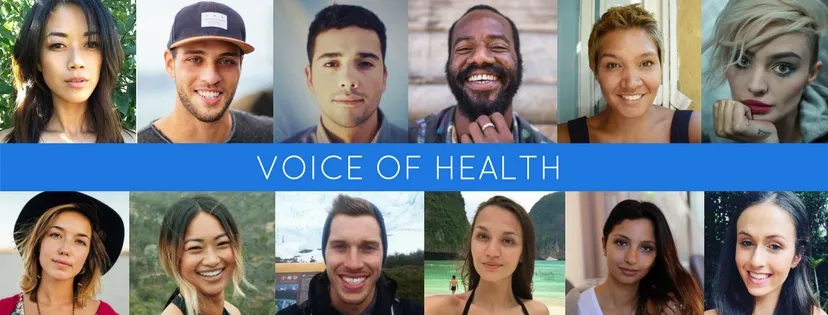"The Invisible Manhood"
A topic that often raises a lot of discussion is transgender. It's important that as a society we are accepting of the individuals going through this. The feeling of being trapped in the wrong body and not understanding your own feelings would feel like being in a mental prison. It undeniably proves how strong and courageous Alex is with his journey.

Alex S.
At the age of thirteen, Alexandra was diagnosed with severe depression. She immediately started therapy and medication. Through the support of her friends and family, she learned to live with it. In fact, she became so good at living with it that often at times people had no idea that she fought with this disease. It was like she was a normal teenage girl. But this article isn't about her. This article is about me. My name is Alexander and I am a man.
From an outsider’s perspective, I had a pretty typical high school experience. I went to school, I went to church, I had friends, I went to school dances and football games, I dated boys. But internally, it wasn't so simple. I didn't feel comfortable at church. Although I was surrounded by people, I didn't actually let anyone in. I wasn't even attracted to the boys I was dating. It was all a mask that I put on because it was what was expected of me because I was female bodied. During the day I'd wear tight low cut shirts, proudly showing off my ample cleavage, but at night I'd stand in front of the mirror, crying because they didn't feel right. I wondered what it might be like to walk down the hallway of my school, holding a girl’s hand. Not caring about labels like “gay” or “lesbian”. Neither of them felt right to me. I didn't even feel right to me. I tried to act happy and confident. But I was slowly unravelling.

I was most uncomfortable at church. I wasn't like the girls my age. They seemed to cluster together, talking about boys and trendy sitcoms, expensive makeup and shopping. And I found myself an outsider. Still I had to act happy. I had to try and blend in, try to include myself in their ramblings. Then there was the dresses. I had to wear a dress to church. The material of the dresses were made of cotton and it felt like barbed wire against my skin. Because deep inside, I was never a girl wearing a dress, I was a boy trapped in what society was telling me I had to be, just wanting to go home. Just wanting to be where I belong.
I was eighteen years old, the first time I ever saw a transgender man. He was on a YouTube video, talking about taking testosterone. He wasn't much older than me. He spoke about how he had never felt quite right in his body, about feeling his best when he dressed and acted more masculine, and his journey into manhood and becoming his true self. I watched a video that showed his progression throughout his transition.
With every clip, his face grew more masculine. His voice became deeper and he began to grow his body and facial hair. As he progressed, he seemed happier. I watched his videos frequently. Often repetitively. For the first time, I felt that I could truly relate. I now understood why I never felt comfortable in my body and why I always felt like I had to pretend.
Coming out to my parents as transgender wasn't easy. It was so difficult, in fact, I ended up waiting five years to tell them even after I knew, but I had to tell them. I had made the decision to start my transition from male to female and with hormones, and that meant I wouldn't be able to hide the changes from them for long. Because of religion, many of their friends would be judgemental of their decision to support me. Though they did not necessarily agree with or understand my decision to live openly as a man, they wanted me to be happy. I know that my transition has been very hard on them, and although their words have not always been kind on the matter, they try to be as supportive as possible.
Coming out at work was much easier. To be honest, no one at my work was surprised. At this point, I had cut my hair short and was already only wearing clothes from the men’s section. If it hadn't been for the incredible team that I worked with, I might not have had the courage to make the appointments and start hormone replacement therapy. Their constant words of encouragement was the fuel that pushed me to live authentically. Immediately after coming out, they began using he/him pronouns for me instead of she/her. Every time I was called “sir” instead of “ma'am” my whole day was instantly brightened.

I began seeing a counsellor. After a few appointments, she diagnosed me with gender dysphoria. With this diagnosis, I would be allowed to start hormone replacement therapy. I was well on my way to becoming the man that I was always meant to be.
On May 31 2016, I gave myself my first shot of testosterone. From then on, I injected myself with it every two weeks. With every shot, I felt stronger. Every month, my voice seemed deeper. I'd watch as my jawline became sharper and hair would start to grow on my upper lip and chin. Soon, it wasn't just co-workers using he/him pronouns. It was strangers as well. People began to see me as the man I was. The more masculine I presented, the more confident I felt. He/him pronouns became the norm for me. I was able to take myself off depression medication. I was happy, I was complete. I finally felt that I belonged.
I want to reiterate the importance of living life authentically. Be true to yourself. Although others may not understand or even agree with your journey, it is unique to you. You cannot live your life and expect to be happy if your focus is based on the acceptance of others. Be you, that’s all that matters.
Team at Voice of Health
If you have a story you would like to share, please feel free to contact us at
info@voiceofhealth.com.au
Website: www.voiceofhealth.com.au - Facebook: @voiceofhealthau - Instagram: @vohofficial
